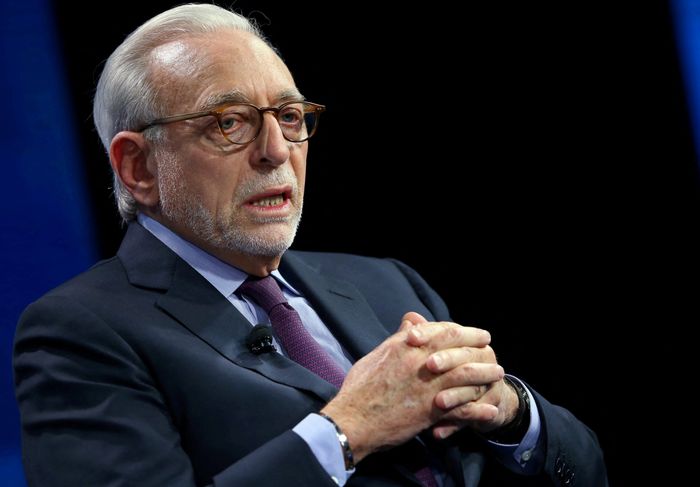U.S. and European activist investors are targeting some of the U.K.’s biggest publicly traded companies, taking advantage of slumping stock prices to push for company breakups and other changes.
In the latest example, Europe’s Cevian Capital has taken an undisclosed stake in Vodafone Group PLC, VOD 3.53% according to a person familiar with the matter. The activist investor wants the $47.6 billion U.K.-based telecom operator to consider refreshing its board with new directors who have telecom experience. It is also pushing the company to consider acquisitions to consolidate the mobile sector in the U.K. and elsewhere in Europe.
The flurry of activity shows how the U.K. market is particularly ripe for activist campaigns. With a total market value of around $2.7 trillion, the London Stock Exchange’s blue-chip FTSE 100 benchmark is among Europe’s biggest indexes, offering investors a pool of big-cap candidates. At the same time, the market has become cheap due to individual company missteps, a relative lack of high-growth technology companies that thrived during the pandemic and the economic fallout from Britain’s divorce from the European Union.
The FTSE 100 trades at a discount to some major markets in Europe and the U.S. It has a forward price/earnings ratio—which measures stock prices as a multiple of expected future profits—of 12.5 times, according to FactSet. Germany’s DAX index is valued at almost 14 times, France’s CAC 40 is at 15 times and the S&P 500 around 20 times.
“The opportunity to restructure businesses, improve returns that have been low in recent years makes the U.K. attractive to activist investors, private equity or other global investors,” said Sharon Bell, European equity strategist at Goldman Sachs Group Inc.
Vodafone has already taken steps to boost its share price, selling a minority stake of its German-based cell tower business last year at a valuation of €12.1 billion, equivalent to $13.6 billion. In November, Vodafone Chief Executive Nick Read also signaled his interest in consolidation in markets in southern Europe to help offset price wars.

Nelson Peltz’s Trian Fund Management owns a stake in the U.K.’s Unilever.
Photo: Mike Blake/REUTERS
Still, the company’s stock has underperformed the overall market over the past five years and been an industry laggard over the same period, underscoring Cevian’s bet that moves such as board changes could reignite the stock price.
Including dividends the stock is down almost 7% compared with a 27% gain in the FTSE 100, according to FactSet.
“The market is getting impatient” with Vodafone, said Mandeep Singh, a technology, media and telecom sales specialist at Redburn Ltd., an equity research provider. “Cevian would be an external catalyst that can apply pressure” on management and the board to act more quickly, Mr. Singh said.
Any attempt by Cevian to influence Vodafone, however, is no guarantee of success, as Elliott’s ongoing battle with SSE shows.
In November, SSE decided against spinning off its renewable power-generation business in an initial public offering to boost value—a plan Elliott had been discussing with the company for months. SSE’s stock is down about 3.1% and has underperformed the Euro Stoxx Utilities index since the company’s decision.

Power-transmission lines hang near a U.K. plant operated by SSE.
Photo: Matthew Lloyd/Bloomberg News
SSE favored selling a stake of its networks business and cutting the dividend to boost investments in the renewables business. That sets the stage for a possible proxy fight over board seats if the two sides can’t reach a compromise.
Elliott declined to comment.
That said, a study by Alvarez and Marsal Holdings LLC, a New York-based professional services firm, shows activism against U.K. companies pays off. Based on the share-price performances of 245 companies targeted by activist campaigns between Jan. 1, 2017, and Feb. 28, 2020, U.K. firms outperformed the S&P 500 index by 3.6% in the 24 months after the campaign’s start. That compared with a 2.7% outperformance for U.S.-listed companies.
Write to Ben Dummett at [email protected]
Copyright ©2022 Dow Jones & Company, Inc. All Rights Reserved. 87990cbe856818d5eddac44c7b1cdeb8








